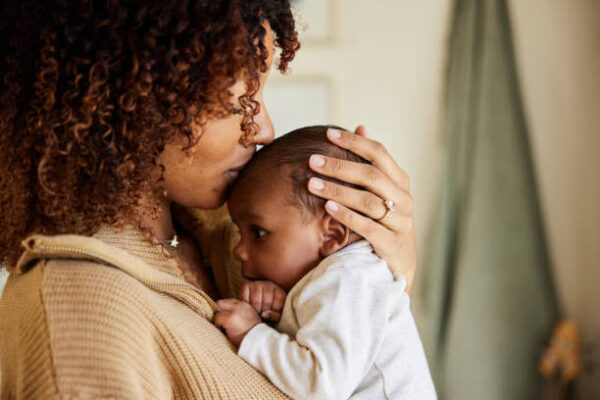Key Highlights
- Poor parenting can lead to childhood trauma that negatively impacts an individual’s mental health.
- Some children carry emotional scars inflicted by their parents.
- Parenting styles can significantly influence future relationships with parents.
African parenting is rich in love, sacrifice, and cultural pride, but it is also influenced by outdated traditions and harmful practices that have been passed down through generations.
In a typical African household, parenting is often very strict, with children guided by household rules to maintain discipline. Unfortunately, some parents have inherited unhealthy behaviors from their own parents, which can be detrimental to a child’s physical and mental well-being in the long run.
Many parents ignorantly push their children away due to their parenting style. A common approach among African parents is “tough love,” which, while well-intentioned, can sometimes do more harm than good.
To be more effective, parents need to become more insightful and attentive to their children, adapting their parenting styles to meet each child’s unique needs. Since children differ in behavior, it is crucial for parents to build closer relationships with their kids to understand their feelings, needs, and expectations. This understanding will enable them to be the best parents their children could wish for.
The pride of an African parent comes from witnessing their child or children succeed and become responsible members of society.

According to WHO Six in 10 children – or 400 million children – under 5 years of age regularly suffer physical punishment and/or psychological violence at the hands of parents and caregivers.
Oftentimes, you will hear African parents say, “Spare the rod and spoil the child.” They strongly believe in disciplining their children through methods such as spanking or other forms of punishment. In some households, these punishments can be quite severe.
Many of us have experienced these forms of discipline ourselves—whether it was being made to kneel while carrying a heavy cement block or table, or being struck with a belt or a strong cane.
Some of these habits often stem from cultural norms, poverty trauma, and a belief that “this is how we were raised”. If we want to raise a generation that is mentally strong, emotionally intelligent and confident, some of these habits must be eradicated.
Let’s explore the most common outdated behaviors that many African parents need to evolve from:
1. Equating Respect with Fear
In many African homes, parents instill fear in their children, expecting them to “fear” their authority as a sign of respect. This mindset discourages questioning, expressing disagreement, and requires obedience without explanation.
While this approach might produce obedient children, it often results in adults who lack confidence in expressing themselves, struggle to stand up for their beliefs, and avoid open conversations in relationships and workplaces.
Instead, replace fear with mutual respect, listen to your children, explain your decisions, and allow them to have a voice. You are teaching them to become deep thinkers.
2. Using Harsh Punishment as the First Solution

Beatings, yelling, and public humiliation is a go-to in most African homes, it is often the default disciplinary method used by parents.
Rather than correcting behavior, these methods can breed resentment, fear, and emotional distance. Some children may become rebellious, while others may become overly submissive, losing their sense of individuality.
Parents need to view discipline as a teaching opportunity; correct behavior through explanation, setting boundaries, and using natural consequences.
3. Constantly Comparing Children
Some parents, especially Nigerians, are guilty in this area. The “See your mate” mentality encourages children to measure themselves against others rather than focusing on their own progress. This practice breeds jealousy between siblings or peers, lowers self-esteem, and can foster a feeling of “never being enough” that persists into adulthood.
We need to celebrate each child’s unique strengths, talents, and pace of growth.
4. Ignoring Mental Health

Mental health is not age or gender selective. Anyone including children experience Mental health struggles. Most times it is often dismissed as laziness or spiritual weakness. For example, a child dealing with depression might be told to “pray harder,” while anxiety may be met with “stop overthinking.” This dismissal prevents children from seeking help, normalizes emotional suppression which can lead to lifelong struggles with untreated trauma.
African parents need to treat mental health with the same importance as physical health. They should normalize therapy, encourage open discussions about feelings, and support emotional well-being.
5. Gender Bias in Upbringing
Many African households provide boys with more freedom and fewer responsibilities, while girls are closely monitored and burdened with chores. This practice reinforces gender inequality, producing entitled sons and overburdened daughters, and creates unhealthy dynamics in adulthood.
Parents need to understand that it is more beneficial to the society when both boys and girls are raised with equal expectations for responsibility, discipline, and personal freedom.
6. Believing Children Owe Parents for Existing
Some parents think that because they raised their children, they are owed loyalty, obedience, and financial support for life. This belief creates guilt-driven relationships where adult children feel torn between living for themselves and constantly trying to please their parents.
Recognize that children are individuals you have nurtured, not investments that must yield returns. Support their independence and success without exerting control.
7. Refusing to Apologize When Wrong
African parents and apology are like enemies. In my part of the world (Nigeria), parents often view apologizing to their children as a sign of weakness or a loss of authority. As a result, children learn that those in power do not have to take responsibility for their mistakes, which can lead to unhealthy power dynamics in their own relationships.
As a parent, model humility by apologizing when you are wrong. It teaches children accountability and fosters mutual respect.
8. Over-Involvement in Adult Children’s Choices

Even as children grow into adulthood, parents frequently dictate their choices regarding careers, marriage, and living arrangements. This behavior can lead to resentment, delayed independence, and, in some cases, fractured relationships when children rebel.
Offer guidance but respect their final decisions. Trust that you have raised them well enough to make their own choices.
9. Suppressing Emotional Expression
Boys are often told to “man up,” while girls are encouraged to endure pain silently. This pressure creates adults who bottle up their emotions, avoid vulnerability, and struggle to form deep emotional connections.
Allow children to express their emotions without judgment, and teach healthy coping mechanisms instead of promoting emotional suppression.
10. Stigmatizing Conversations About Sex and Relationships
Sex education is often treated as taboo, with discussions on consent or dating entirely avoided. As a result, children grow up uninformed, making them more vulnerable to abuse, early pregnancy, and unhealthy relationships.
Provide age-appropriate sex education and facilitate discussions about relationship boundaries. Open conversations can encourage safety and informed decision-making.
11. Limiting Dreams Due to Poverty Trauma
Parents who grew up in hardship may discourage their children from pursuing creative careers or risky ventures, insisting on “safe” professions instead. This approach stifles ambition, creativity, and innovation, leading to unfulfilled adults stuck in careers they dislike.
Parents should instead, support and guide children toward their passions while helping them plan for stability.
12. Overemphasizing Reputation Over Well-Being
Some parents prioritize “What will people say?” over their child’s happiness, safety, or mental health. This pressure forces children to hide their struggles, remain in toxic situations, or live inauthentic lives just to protect the family’s image.
It is essential to place the child’s well-being above societal judgment. A healthy, happy child is the best reputation a family can have.
Final Thought
Breaking these toxic patterns doesn’t mean throwing away African cultural values, it simply means keeping the love, strength, and togetherness while letting go of control, fear, and shame. Healthy parenting raises confident, independent children who will one day thank you not just for raising them, but for truly understanding them.










